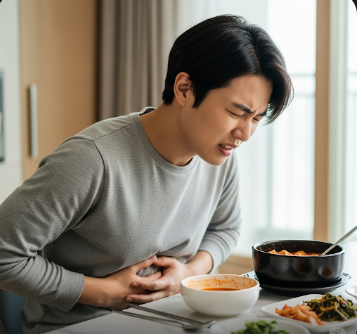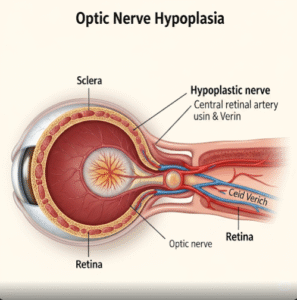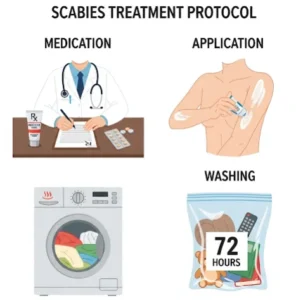Overview
Indigestion, also known as dyspepsia, is a term for discomfort or pain in the upper abdomen, often associated with bloating, nausea, or feeling full quickly after meals. It is a common gastrointestinal complaint affecting people of all ages. While often mild and temporary, chronic indigestion may indicate underlying digestive disorders.
In South Korea, gastroenterology clinics provide diagnostic evaluations, lifestyle counseling, medications, and advanced treatments for dyspepsia, ensuring both relief and long-term digestive health.
Key Facts
🟢 ➤ Indigestion affects millions of people worldwide, with varying frequency and severity.
🟢 ➤ Symptoms include upper abdominal discomfort, bloating, nausea, belching, and early satiety.
🟢 ➤ Causes may be functional (no structural disease) or organic (due to ulcers, reflux, or infections).
🟢 ➤ Risk factors include stress, smoking, alcohol, fatty foods, NSAIDs, and underlying gastrointestinal disorders.
🟢 ➤ Diagnosis is based on clinical evaluation, sometimes with endoscopy, blood tests, or imaging.
🟢 ➤ Treatments include dietary modifications, medications, stress management, and advanced therapies for chronic cases.
What is Indigestion (Dyspepsia)?
Indigestion refers to a collection of upper abdominal symptoms rather than a single disease.
➤ Symptoms may include burning, fullness, bloating, nausea, or discomfort after eating.
➤ Dyspepsia is classified as:
- Functional dyspepsia: no identifiable cause on tests; linked to gastric motility or hypersensitivity.
- Organic dyspepsia: caused by identifiable conditions such as peptic ulcers, gastritis, gastroesophageal reflux disease (GERD), or infections.
➤ While usually mild and temporary, persistent dyspepsia requires evaluation to rule out serious conditions such as stomach cancer or H. pylori infection.
Symptoms Related to Indigestion
Common symptoms of indigestion include:
🟢 ➤ Upper abdominal pain or discomfort.
🟢 ➤ Feeling full after eating small amounts (early satiety).
🟢 ➤ Bloating, belching, or gas.
🟢 ➤ Nausea or occasional vomiting.
🟢 ➤ Burning sensation in the stomach or upper abdomen (heartburn if reflux is present).
🟢 ➤ Loss of appetite or mild weight changes in chronic cases.
Causes / Possible Causes
Indigestion may result from a variety of factors:
Functional Causes (No Structural Disease)
➤ Delayed gastric emptying (gastroparesis).
➤ Increased sensitivity of stomach lining.
➤ Stress, anxiety, or nervous system factors.
Organic Causes
➤ Peptic ulcers caused by H. pylori infection or NSAID use.
➤ Gastroesophageal reflux disease (GERD) leading to acid irritation.
➤ Gastritis due to infection, alcohol, or medications.
➤ Gallbladder disease or bile reflux.
Lifestyle Factors
➤ Excessive intake of fatty, spicy, or fried foods.
➤ Alcohol or caffeine consumption.
➤ Smoking and sedentary lifestyle.
Medications
➤ NSAIDs, antibiotics, steroids, and certain heart medications may irritate the stomach.
When Should I See a Doctor?
Seek medical advice if:
🟢 ➤ Symptoms persist for more than a few weeks despite lifestyle changes.
🟢 ➤ Severe or worsening abdominal pain occurs.
🟢 ➤ There is unintentional weight loss, vomiting blood, black stools, or difficulty swallowing.
🟢 ➤ Indigestion is accompanied by fever or jaundice.
🟢 ➤ There is a history of ulcers, stomach surgery, or family history of gastrointestinal cancers.
Early evaluation helps diagnose underlying conditions and prevent complications.
Care and Treatment
Management of dyspepsia focuses on symptom relief, lifestyle modification, and treating underlying causes:
Lifestyle and Home Measures
➤ Eat smaller, more frequent meals.
➤ Avoid trigger foods such as spicy, fatty, or acidic meals.
➤ Limit alcohol, caffeine, and smoking.
➤ Manage stress with relaxation techniques or counseling.
Medications
➤ Antacids for short-term relief.
➤ H2 receptor blockers or proton pump inhibitors (PPIs) to reduce acid production.
➤ Prokinetics to improve gastric emptying in functional dyspepsia.
➤ Antibiotics if H. pylori infection is identified.
Advanced Care in Korea
➤ South Korean gastroenterology clinics offer endoscopy, H. pylori testing, imaging, and personalized treatment plans.
➤ Chronic or severe dyspepsia is managed with a combination of medical therapy, dietary counseling, and stress management.
➤ Multidisciplinary care ensures early detection of serious conditions and effective long-term symptom management.
Highlights (Clean Green Arrow Version)
🟢 ➤ Indigestion (dyspepsia) is upper abdominal discomfort, bloating, or nausea after meals.
🟢 ➤ Symptoms: upper abdominal pain, early fullness, bloating, belching, nausea, burning sensation, and appetite changes.
🟢 ➤ Causes: functional gastric issues, peptic ulcers, GERD, gastritis, gallbladder disease, medications, or lifestyle factors.
🟢 ➤ Seek medical care for persistent symptoms, severe pain, vomiting blood, black stools, or weight loss.
🟢 ➤ Treatments include dietary modification, antacids, acid-suppressing medications, prokinetics, antibiotics for infections, and stress management.
🟢 ➤ South Korea provides advanced gastroenterology care with diagnostics, endoscopy, personalized management, and long-term monitoring for chronic dyspepsia.













